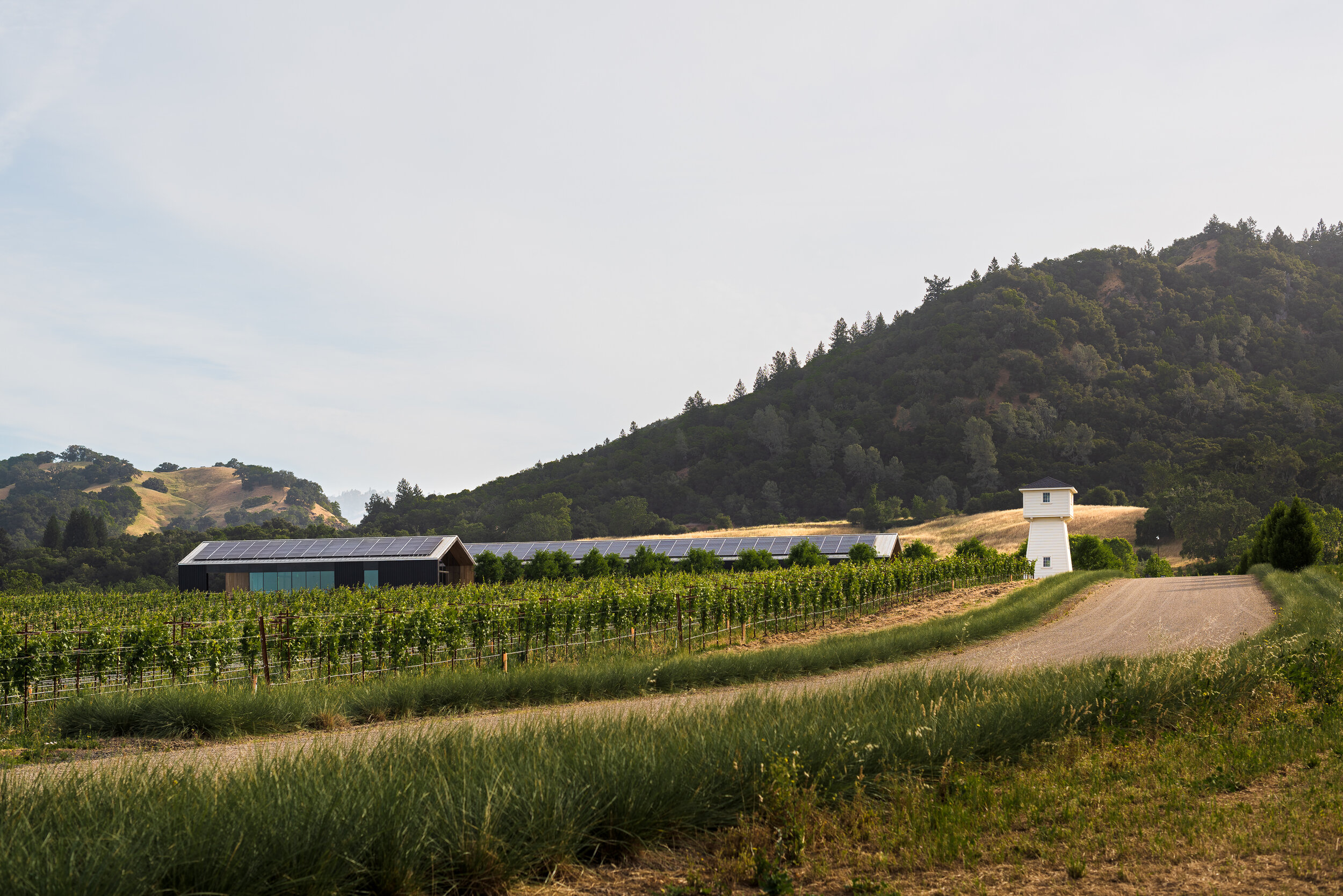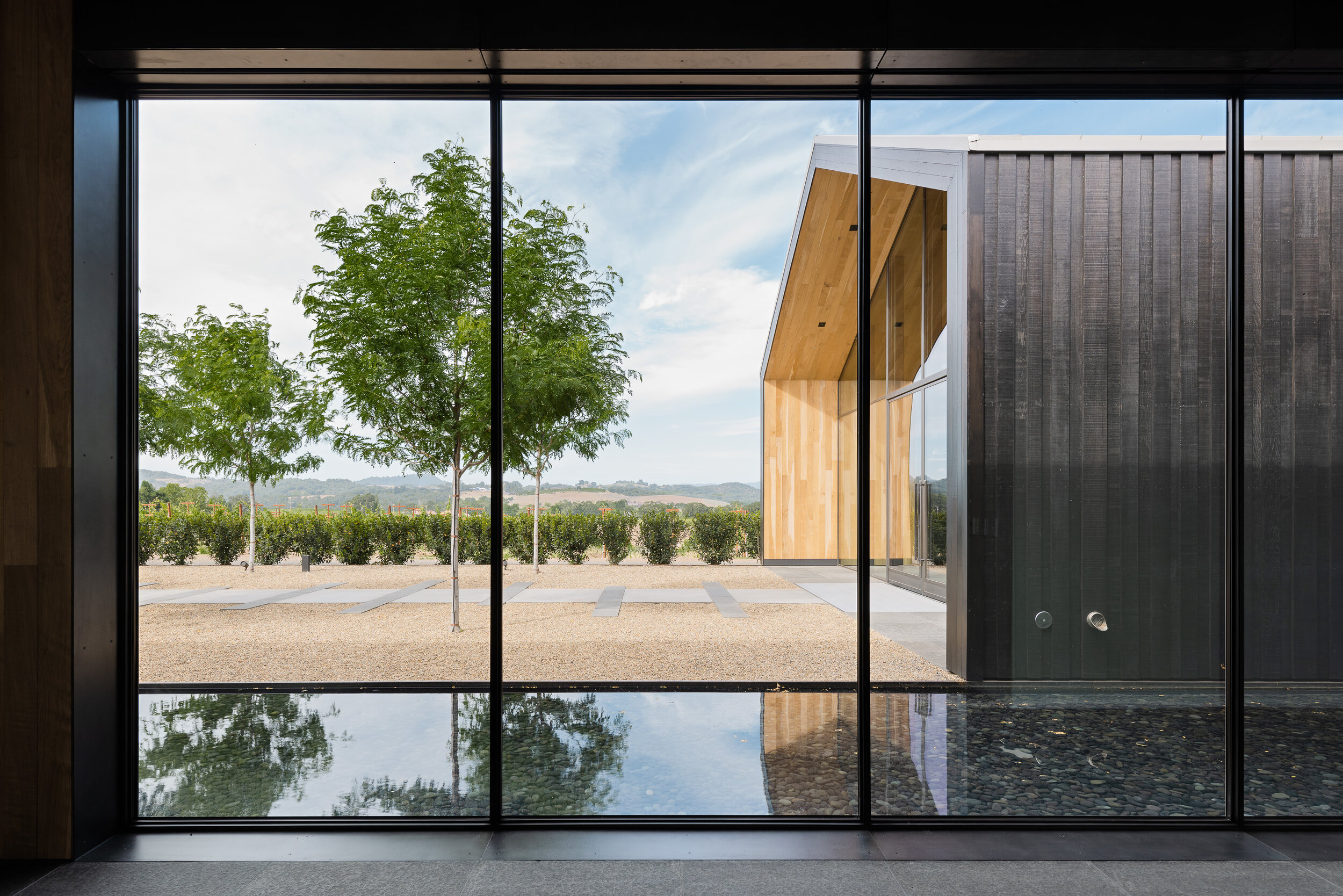California vineyard an environmental winner
On the 113-acre site where the Silver Oak vineyards now stand, Zinfandel vines have grown since the 1880s.
The new Silver Oak in Sonoma County, California, is a small, family-owned winery which is the most environmentally responsive winery in the US, attaining LEED Platinum and Living Building Challenge Certifications.
The architecture & landscape design achieved the client’s goal in creating the only zero net water and zero net energy winery in America.
Silver Oak Winery in Sonoma County, California. Photo credit: Patrik Argast
From the beginning, there were strong aspirations for the new winery to be outstanding in its field of viticulture, become one of the most sustainable wineries in the world, and not at the expense of making great wine.
The challenge for the landscape designers - Munden Fry Landscape Associates (MFLA) - was how to take an energy hungry monoculture and transform it into a sustainably diverse ecosystem while allowing the vineyard to produce a consistent yield and provide a memorable, educational experience for visitors.
Silver Oak is a small, family-owned winery. Photo credit: Joe Fletcher
The landscape scope included vineyard layout and management, vehicular circulation and parking, events and visitor experience.
To meet these different needs, the design had to be functional and versatile, while delivering a sophisticated yet approachable outdoor space.
The agricultural design vocabulary reinforced the identity of the land to create a dynamic interplay of light, shadow, reflection, and repetition.
Natural ecologies on the site were preserved and enhanced with climate appropriate planting and an innovative water management system that includes a network of designed bioswales, a membrane bioreactor, and a 2.5-acre pond that serves as the main water source for the vineyard.
The architecture & landscape design achieved the client’s goal in creating the only zero net water and zero net energy winery in America Photo credit: Joe Fletcher
The reflecting pool that runs alongside the tasting room, recalls the exalted role that water plays in the region. Its central placement provides cooling and lighting effects and reflects the project’s many layers of articulation – gravel, concrete, tree, siding, glass, grass, wood – together on a single plane.
Hedgerows, allees, bosques and grass meadows define both the production and hospitality environments at Silver Oak. As part of the conservation effort and preparation for new planting, all non-native species were eradicated.
Natural ecologies on the site were preserved and enhanced with climate appropriate planting and an innovative water management system Photo credit: Joe Fletcher
Several existing native Oaks (Quercus agrifolia) on the property were retained and preserved, with one large specimen transplanted to a more prominent location.
Laurus nobilis, a low-water evergreen hedge, creates outdoor rooms and frames views to the surrounding landscape. At the entry road, bioswales are planted with Muhlenbergia dubia, a species well suited to summer-dry climates.
The reflecting pool that runs alongside the tasting room, recalls the exalted role that water plays in the region. Photo credit: Joe Fletcher
At the Tasting Room and Production Building, Carex barbarae, Carex praegracilis, and Juncus effuses, all California natives, line the bioswales.
Insectary planting promotes the health of the vineyards and reduces pesticide use by providing habitat for beneficial insects such as bees, ladybugs, lacewings, and other pest-predators. The insectary palette includes a diverse range of native shrubs, flowering perennials, and wildflowers deliberately chosen for functional purposes across the site.
By exploring the site’s unique identity and goals, the MFLA responded with a holistic design that supported a vibrant, sustainable ecology while meeting the needs of a working production facility and an inviting space for wine lovers.
The project received an honourable mention in the 2021 World Landscape Architecture awards.




